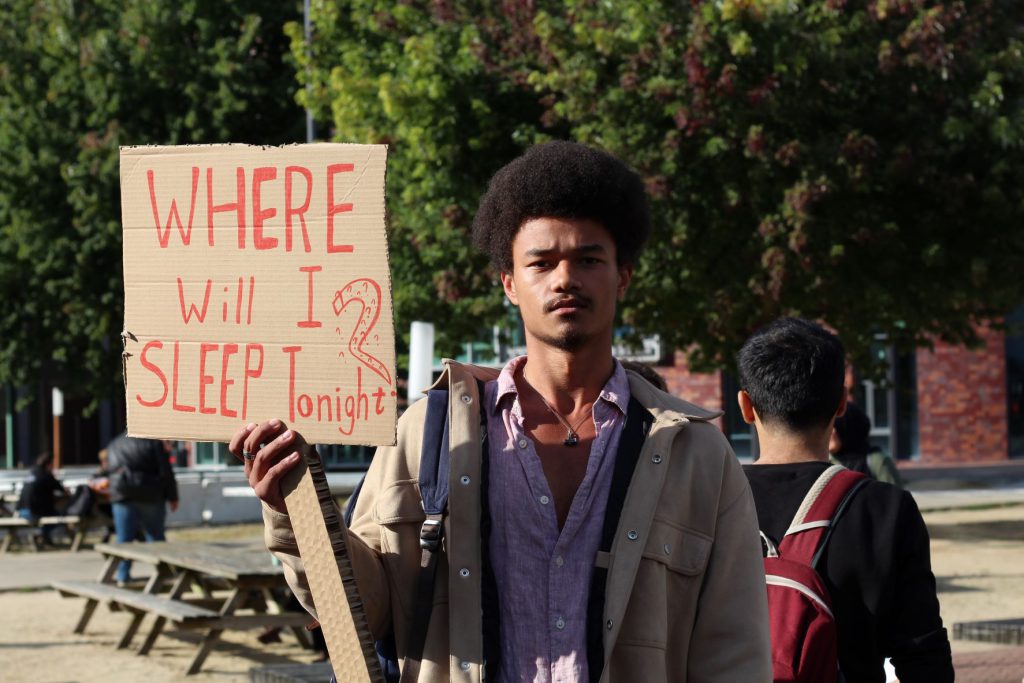The International Office is working hard to find all the incoming international students a room, but the numbers show that this will be tough. Therefore, extra measures are taken.
Seven months after the student housing protest at the VU campus, the International Office is looking for creative solutions to provide housing for international students. Henny Smit, the team leader of the Service team of the International Office, makes a list of all the work that her department is doing to manage the housing crisis among international students.
Currently, with the first application deadlines passed, the International Office is observing the numbers on the influx of international students that VU is expecting next year. Looking at the statistics, things do not look good for the next academic year. “At this stage, I already foresee a shortage”, Smit says.
Creative options
According to the calculations made by the International Office, 45 percent of international bachelor’s students apply for housing through the International Office. An average of 55 percent of master’s students also apply for housing through VU. “That’s what I have seen for the last ten years. But we are doing our utmost to find extra accommodation”, Smith says. “I think it will be difficult this coming year. We are looking for alternative options and we are asking all our housing contacts for extra options.”
These so-called creative options are touristic accommodations and a reliance on students who are moving abroad to offer their accommodation to incoming students. “We’re looking for exchange students renting out their homes to international students. Last year we did not do that because the corona situation made it uncertain for students whether they could go abroad.”
The International Office is strategically working with the housing available to accommodate international students. “We hope to find long stay accommodation in hostels, hotels or bungalows at campings for exchange students who are staying for five or six months. In this way we can also make room for other students who will stay longer.”
VU started another collaboration with a platform called Hospihousing. “Through this platform, we hope to find local hosts in Amsterdam who have a spare room to rent for students.”
Communication
The International Office also works on the improvement of their communication. Their website has information on the housing market in Amsterdam with, among others, an animated tutorial. They are putting out a newsletter with the possibilities and impossibilities, do’s and don’ts, rules and regulations regarding housing.
“In our communication to students”, Smit says, “we advise students not to come to VU if they do not yet have a room before the first of August. We recommend postponing to next academic year, to have more time to find accommodation.”
Reminded of the responsibilities of VU Amsterdam providing for student housing, Smit asks: “What about the responsibility of the students themselves? They are informed about the housing situation and the shortage of living space here. But as VU Amsterdam is a high ranking university and Amsterdam is an attractive city for students, it’s difficult to stop them from choosing VU Amsterdam to study.”
Educated choice
Floris Korbee, policy advisor of the International Office is currently working on a pilot that was initiated last summer. “The project is called strategic enrolment management. By improving our communication, we make sure prospective students enrol in a study program that fits their background. By profiling a program in a certain way, students can make a more educated choice.”
“The main goal of this project is to improve the quality of our education programs”, Korbee says. “Certain programs have many more students than they can handle, which impedes the quality of the studies. “Starting this summer, we want to go broader with this pilot and present it to other study programs.”
